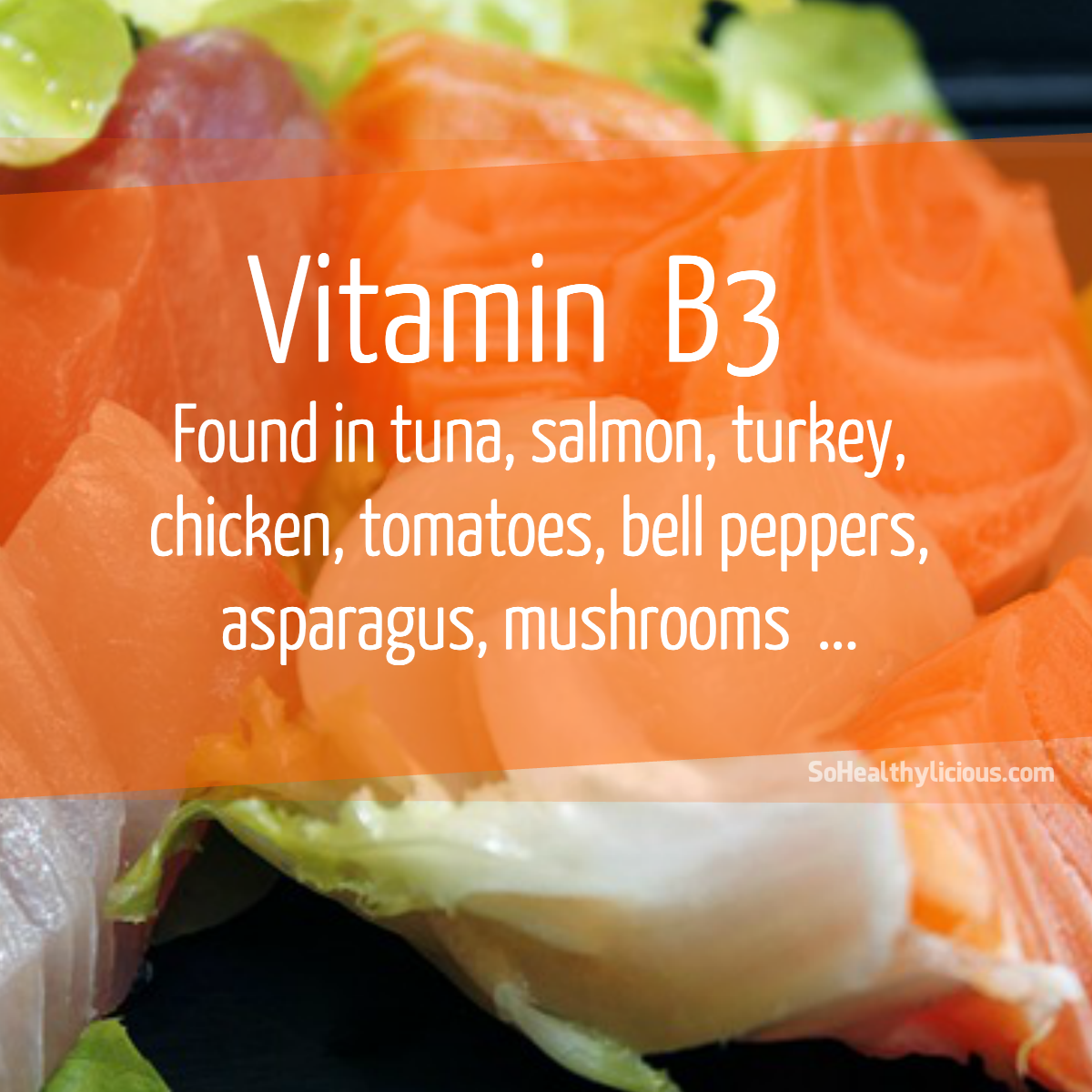
The benefits of vitamin B3 (also known as niacin and niacinamide), are broad. So what does this necessary nutrient do and how can we get more of it in our diets? Here are some tips …
The Benefits of Vitamin B3
Like the others in the B complex of vitamins, B3 is used in the body for energy production. In addition, niacin works to eliminate harmful free radicals in the body to protect it from tissue damage.
Niacin has been used to treat high cholesterol and osteoarthritis and is part of a comprehensive treatment plan for circulation problems, dizziness, and migraine headaches. There is also evidence that niacin is helpful for those managing diabetes.
It is important to note that, while both are labelled vitamin B3, niacin and niacinamide are processed differently in the body and produce different health benefits.

Vitamin B3 Food Sources
The most potent natural food sources of vitamin B3 are: tuna, chicken, salmon, and turkey. However if you are a vegetarian, it is best to consume whole grains, seeds, nuts (like almonds), legumes and mushrooms.
Good vegetable sources of vitamin B3 include tomatoes, bell peppers, sweet potatoes, and asparagus. Other vegetable sources are legumes, like peanuts and green peas, leafy greens, and root vegetables. Dates are a good fruit source.
Because vitamin B3 is a water soluble vitamin, and can’t be stored by the body, it is important to consume foods rich in niacin every day. The good news is that niacin is more easily available than some vitamins because it can be synthesized by the liver from the essential amino acid tryptophan.
Vitamin B3 Deficiencies
Vitamin B3 deficiency manifests as a nasty disease called pellagra, which is characterized by dermatitis, skin lesions, digestive problems, psychiatric symptoms, and eventual death, if left untreated.
Symptoms of deficiency can include depression, poor concentration, irritability, and fatigue.
Alcohol abuse and poor diet are usually to blame for most cases of vitamin B3 deficiency. Alcohol is to blame for a number of deficiency issues as it interferes with the normal metabolism of many nutrients.
Want a fast, easy serving of vitamin B3?
Open a can of tuna and dig in! Tuna is an excellent source of niacin and a single serving can provide your daily recommended intake of this valuable nutrient. But if you’re not a fan of fish, a handful of peanuts is also a good source of vitamin B3.